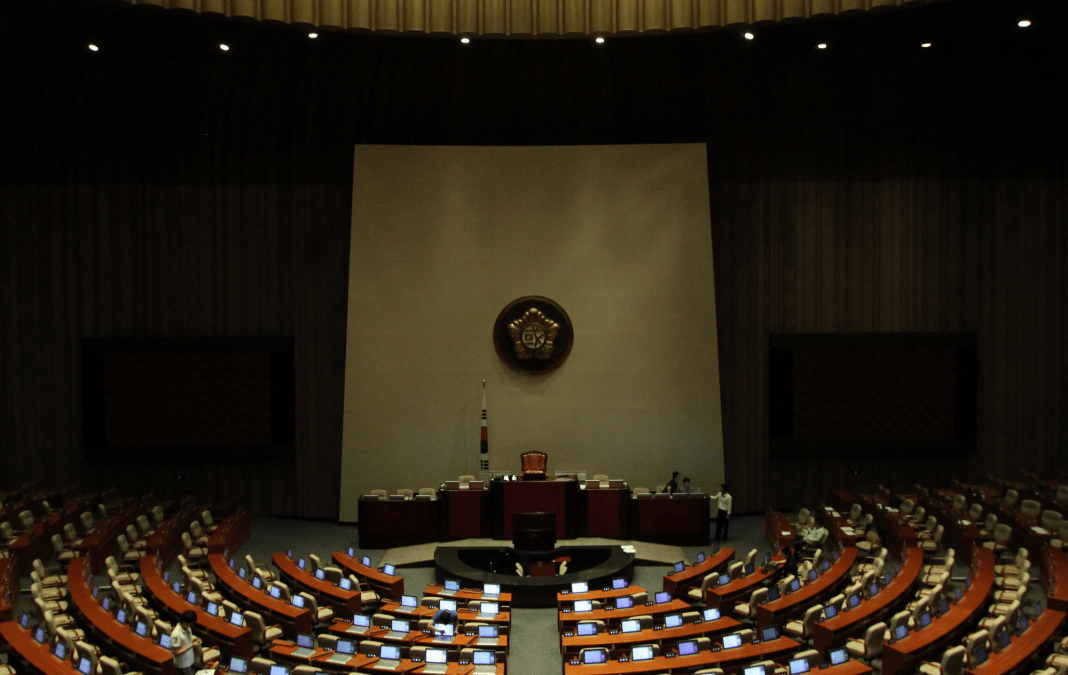Legislation outlining the regulatory framework for digital currencies including bitcoin in South Korea has been introduced by lawmaker Park Yong-jin. It defines digital currency, introduces five classifications of digital currency handlers, as well as specifies requirements and prohibited activities.
Also read: Korean Digital Currency Bill to Launch Shortly but Government Has Concerns
‘Bitcoin Regulation Act’ Introduced

Korean Democratic Party lawmaker Park Yong-jin announced last week that he has introduced an amendment for the Electronic Financial Transaction Act. Its main purpose is to create a regulatory framework for digital currencies in order to “maintain healthy market order and protect users,” Inews24 reported. Business Korea calls this amendment the “Bitcoin Regulation Act.”
“As interests in virtual currencies such as bitcoin and ethereum have soared,” Park said “there is no clear definition of virtual currencies or restrictions on those who can sell virtual currencies.” He first announced that he would introduce this legislation back in July. Business Korea wrote:
The Bitcoin Regulation Act is scheduled for a regular session of the National Assembly in September with a growing debate foreseen.
Definitions and Classifications
 In this amendment, virtual currency is defined as “an instrument of exchange or an electronic store of value,” reported Inews24. It also distinguishes virtual currency from “real” currency. The amendment proposes five classifications of digital currency handlers with the following definitions.
In this amendment, virtual currency is defined as “an instrument of exchange or an electronic store of value,” reported Inews24. It also distinguishes virtual currency from “real” currency. The amendment proposes five classifications of digital currency handlers with the following definitions.
- “Virtual currency traders” – those selling goods or services in exchange for digital currency.
- “Virtual currency dealers” – those operating a market for the sale of virtual currencies such as exchanges.
- “Virtual currency brokers” – those intermediating or arranging the sale of digital currency.
- “Virtual currency issuers” – those offering systems to create and issue digital currencies, and
- “Virtual currency managers” – those storing or managing digital currencies for others.
Requirements and Prohibited Activities
The revised legislation requires all digital currency handlers “to have 500 million won or more in capital and receive approval from the Financial Supervisory Commission,” detailed Business Korea.
 The amendment also mandates customer funds be deposited at a separate institution with insurance, or some form of payment guarantee in order to protect customers, the publication added.
The amendment also mandates customer funds be deposited at a separate institution with insurance, or some form of payment guarantee in order to protect customers, the publication added.
The legislation prohibits several specific digital currency-related activities such as their sale and brokering through door-to-door and multi-level marketing schemes. It also strictly prohibits illegal acts involving digital currencies, such as market price manipulation and money laundering. Violations can carry a prison sentence of up to five years or a fine of up to 50 million won, Business Korea detailed.
What do you think of the proposed “Bitcoin Regulation Act”? Let us know in the comments section below.
Images courtesy of Shutterstock, Wikiwand, the Herald
Need to calculate your bitcoin holdings? Check our tools section.










